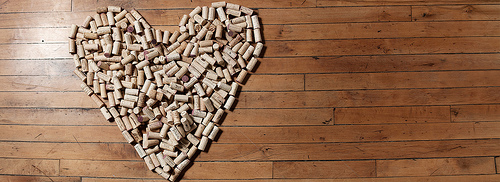Who's the Greenest Floor of All?
Ah, those things we put our feet (or wheels) on. Floors do a whole lot for us without asking for much in return, and if you're thinking about replacing or upgrading yours, have you considered the environmental implications of what you choose? Flooring makes up a significant portion of your home and it's a building material that's often replaced, thanks to the fact that floors wear down quickly, what with all the walking, wheeling, furniture moving, and goofing around. Your choice of flooring isn't just an aesthetic decision, it's also an environmental one.
So, mirror mirror on the wall, what's the greenest floor of all?
The answer to that question is a bit complicated, as green flooring choices depend in part on where you live, what's available where you are, and current trends in the building industry. You may have to do some research to discover the best option for you, and you should definitely discuss your concerns with your flooring contractor to get an idea of what's lean, green, and mean where you are.
The greenest choice, bar none, no matter which other factors are going on, is the floor you have. By keeping your floor, you eliminate the need for more flooring materials along with associated costs. If your floor isn't in great shape, you may be able to refurbish it with buffing, waxing, replacement of damaged components, and other options to get it looking like new again.
If this isn't an option for you (your floor is falling apart, it's totally hideous, etc.), floors made from reused, recycled, and refurbished materials are often a next best bet. These materials eliminate the need for brand new source materials (like wood) and also keep things out of the waste stream, in a pretty cool double-whammy.
We're not just talking reclaimed flooring from old buildings, by the way. A number of flooring products are made with both recycled and waste materials, including linoleum (wood shavings and other scraps), recycled glass tiles, and more. You have a tremendous number of options when it comes to recycled, repurposed, and reclaimed flooring materials.
Still fixed on new materials? There are still green options aplenty!
Bamboo is a fast-growing grass that's become popular for flooring in recent years because of its highly renewable nature. It can be softer than hardwoods, so it's better suited for areas where foot traffic isn't extremely high (bamboo halls, for example, aren't a good idea). Cork flooring is another fantastic option. Sustainably harvested cork is taken without damaging the parent tree, and it's incredibly durable in addition to beautiful. Might seem weird to walk on wine corks, but give it a shot!
For carpet-lovers, wool carpeting is a green option. It's durable, beautiful, and naturally fire-resistant (nice bonus!). Steer clear of wool that's been processed with harsh chemicals and dyes; lots of firms make sustainable wool carpeting that's quite lovely. Another option is sustainable hardwood, harvested under supervision from third party certifying organizations.
Have you considered concrete? Before you freak out, San Francisco concrete firms are doing amazing things with indoor concrete installations, and you can have a beautiful and ecologically friendly concrete floor. (It can even be inset with glass, ceramic, or other tile materials.) Concrete is highly durable and highly malleable, which means it can be customized in any number of delightful ways. Think about it!
Speaking of tile, ceramic and glass tile are ancient flooring materials and they're good choices as well. These materials hold up well and they can be made from recycled components (in addition to being recycled when they're no longer needed). Ask for samples of eco-friendly materials to get an idea of the styles and colors available.
Whichever flooring option you choose, don't forget to ask a critical question: what happens to the old flooring? Make sure your contractor is taking it to a recycling, refurbishing, or reclamation facility, not dumping it in a landfill.
Katie Marks writes for Networx.com.
Looking for a Pro? Call us (866) 441-6648

Remodeling Average Costs
Remodeling Contractors Experiences

Yard Cleanup And Lawn Care Service With A Great Work Ethic

A Local Pro To Install My Bathroom Floor Tile Was The Best Choice




